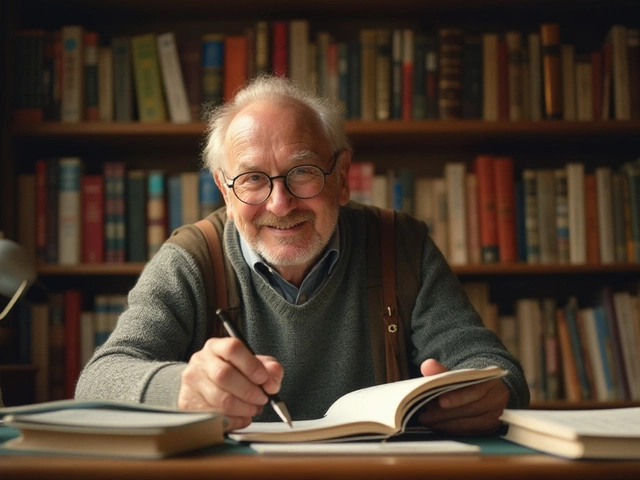Tutor Mistakes Checklist
Avoid These Common Tutor Mistakes
Check off each item that you should avoid when tutoring one-on-one to ensure effective and ethical instruction.
Ever sat down for a tutoring session and felt something was off? Chances are the tutor-maybe you-was falling into one of the classic traps that ruin learning, strain relationships, or even cross ethical lines. Knowing what NOT to do is just as vital as mastering the right techniques. Below you’ll find the most damaging habits, why they matter, and practical ways to steer clear.
Typical Behavioural Pitfalls
First off, let’s call out the obvious tutor mistakes that pop up in almost any setting.
- Arriving late or leaving early without a solid reason.
- Talking more than listening; the session becomes a lecture, not a dialogue.
- Using jargon that the Student the learner who receives instruction hasn’t mastered yet.
- Relying on a single teaching style regardless of the learner’s Learning Style the preferred way a student processes information.
- Skipping a clear Lesson Plan a structured outline of objectives, activities, and assessments for a tutoring session and winging it.
Breaching Professional Boundaries
One of the most serious red flags is overstepping the line between tutor and friend (or worse, parent). A Tutor a professional who provides individualized instruction outside a formal classroom must maintain clear limits.
Do NOT:
- Accept gifts that could influence grading or favouritism.
- Engage in non‑educational personal chats during paid time.
- Share personal contact details that invite off‑hours messages.
- Discuss the Confidentiality the duty to keep student information private of other students in unrelated contexts.
Crossing these borders can damage trust, lead to accusations of impropriety, and even result in legal consequences.
Ignoring the Student’s Individual Needs
Every learner comes with a unique set of strengths, gaps, and motivations. Ignoring this reality is a fast track to disengagement.
Key no‑nos:
- Assuming a “one‑size‑fits‑all” approach-same drills, same pace-for everyone.
- Failing to adapt materials when a student shows signs of fatigue or anxiety.
- Neglecting to identify and build on a student’s interests, which could boost intrinsic motivation.
Effective tutors run a quick pre‑session check: a short questionnaire or informal chat that surfaces learning preferences, recent challenges, and personal goals.

Poor Communication With Parents or Guardians
When the learner is a minor, parents often act as the bridge between home and tutoring. Bad communication can erode that bridge.
Don’t:
- Skip regular progress updates-sending a brief email after each session is a must.
- Use vague language like “the student is improving” without concrete examples.
- Ignore parental concerns or suggestions; they often have insight into the child’s out‑of‑class behavior.
Instead, set a predictable schedule: a short recap after every third lesson, plus a more detailed report at the end of each month.
Inadequate Preparation & Assessment
Running a session without a clear purpose is a waste of both parties’ time. A well‑prepared tutor will:
- Define a specific learning objective for the hour (e.g., "solve quadratic equations using factoring").
- Gather necessary resources-worksheets, digital tools, or manipulatives-before the session starts.
- Design a quick Assessment a short test or activity used to gauge student understanding to gauge progress at the end.
Skipping any of these steps leaves the session feeling aimless and can create gaps in knowledge that go unnoticed.
Neglecting Feedback & Progress Tracking
Feedback isn’t just a pat on the back; it’s actionable information that guides the next steps.
Common errors:
- Giving only praise without pointing out specific improvements needed.
- Waiting weeks before addressing a recurring error, allowing the habit to solidify.
- Not recording scores, time spent, or difficulty levels, making it impossible to spot trends.
Use a simple spreadsheet or a free tutoring app to log each session’s objectives, outcomes, and next‑step recommendations.

Ethical & Legal Slip‑Ups
Beyond professionalism, there are legal obligations that tutors must respect.
Do NOT:
- Share a student’s academic records with third parties without written consent.
- Ignore mandatory safeguarding policies if you suspect abuse or neglect.
- Charge for services that run beyond the agreed scope (e.g., extra homework grading without prior arrangement).
Staying informed about local regulations-like Ireland’s Child Safeguarding Guidelines-keeps both tutor and student safe.
Quick “Do NOT” Checklist
- Do not start late or end early without notifying the student/parents.
- Do not dominate the conversation; keep it interactive.
- Do not use unexplained jargon.
- Do not impose a single teaching style on every learner.
- Do not share personal opinions on unrelated topics during paid time.
- Do not ignore parental updates or concerns.
- Do not skip a pre‑session objective or post‑session assessment.
- Do not neglect written feedback and progress logs.
- Do not breach confidentiality or safeguarding policies.
Frequently Asked Questions
How early should a tutor arrive before a session?
Aim to be ready 5‑10 minutes early. This buffer lets you set up materials, greet the student, and confirm the day’s objective without rushing.
What’s the best way to handle a student who constantly asks off‑topic questions?
A gentle redirect works: acknowledge the curiosity, then say, “Let’s note that for later. Right now we need to finish ___.” This respects their interest while keeping the session on track.
When should a tutor involve parents in a student’s difficulties?
If a problem persists after two or three attempts to address it in‑session, inform the parents. Provide specific examples and suggest a joint plan to support the student.
Is it acceptable to give a student a small gift for good progress?
Avoid gifts that could be seen as favoritism. Simple, non‑monetary acknowledgments-like a handwritten note-are more appropriate and keep professional boundaries clear.
How often should a tutor update progress records?
Record outcomes after every session. Summarize trends weekly and share a concise report with parents at the end of each month.






